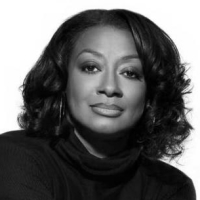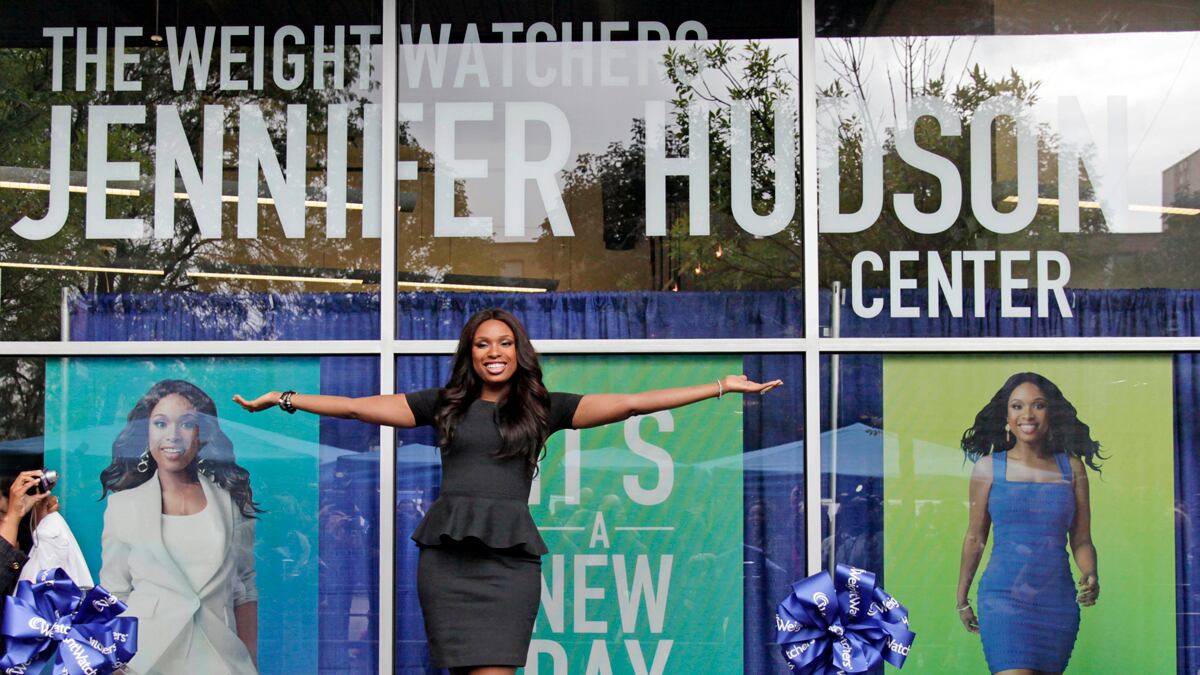Few in black Hollywood would have suggested or predicted Jennifer Hudson’s 2010 decision to use her full-figured frame, powerful voice, and sweet-faced charm to pitch the not-so-novel idea of weight loss. But Hudson had her own thoughts on how to pave and maintain a path to fame and fortune.
The 30-year-old songstress, whose road to stardom began with her stint on American Idol and hit warp speed with her Oscar-winning performance in the film Dreamgirls, had suffered the loss of her mother, brother, and nephew in 2008. The tragic details of her family life, coupled with the stingy options for actresses of color, threatened to alter the trajectory of her career, as well as limit the narrative of her personal story and long-term success in Tinseltown.
By signing on as a weight-loss spokeswoman, Hudson may have shed 80 pounds, but with eye-catching commercials showcasing her newly svelte figure and incredible vocal range, she gained much more. Her highly stylized ads for Weight Watchers received a dizzying amount of airtime in 2010 and 2011, earning her a level of visibility few film roles or hit singles could provide.
“I knew who Jennifer Hudson was from Dreamgirls and her family tragedy, but that was about it,” said Lisa Franklin, a 55-year-old teacher from Boston. “But after the Weight Watchers commercials, I really knew who she was, because those commercials came on six or eight times a day and she looked good.”
Although Hudson isn’t the first woman of color to star in weight-loss ads—Queen Latifah kicked off the trend on Weight Watchers several years ago—Hudson has perfected the art. And she may have singlehandedly provided a new and highly lucrative blueprint for others yearning to earn top dollar and gain maximum exposure while reigniting a waning fan base. Weight-loss companies often pay seven figures to have major names promote their products.
In November, Mariah Carey was announced as Jenny Craig’s new spokeswoman and in commercials credited the program for a 30-pound weight loss after the birth of her twins.
Then, just before Christmas, Janet Jackson debuted her fast-paced, conversational-style ads for Nutrisystem, in which she explains her three-decade struggle with her weight and how Nutrisystem has helped her keep the pounds off.
Carey’s last three albums have shown declining sales, and while Jackson has managed to stay in the headlines with roles in Tyler Perry films, her once record-breaking recording career peaked years ago, and her concerts are now at smaller venues. The new Jenny Craig and Nutrisystem commercials keep Carey and Jackson in the spotlight they have long thrived in.
But as many welcome the new stream of revenue and major exposure for women of color on the small screen, others question the underlying message of the ads.
“I was really surprised when I saw Janet Jackson doing a weight-loss commercial,” said Fred Mwangaguhunga, editor of the popular African-African entertainment website MediaTakeout.com. “I don’t think this is something she would have done five years ago, given her personality. But times have changed and the way you have to sell yourself has changed, so you use what you have.”
What Jackson, Hudson, and Carey all seem to have are extra pounds that require much more than exercise to lose. African-Americans, and African-American women in particular, have struggled with the issue of weight and weight loss for years, often questioning whether European standards of beauty and size apply to other cultures and races.
“I see the commercials and I want to lose weight, but I’m not sure I want be Hollywood skinny,” said Leona Harris, a 31-year-old receptionist from Dallas. “I look at Jennifer and I look at Janet and I like the way they look, but I’m not sure I’m supposed to be that skinny or if I can be.”
And while Mwangaguhunga said he loves that these women have a new marketing option, he fears that the trend of routinely featuring high-profile black women touting massive weight loss sends a confusing and complicated message to young women of color. Several studies over the years have shown that African-American women usually have high levels of self-esteem when it comes to weight and body issues.
“I’m happy these women have another way to promote their careers, but I do worry young girls of color will begin to look at those commercials and develop unhealthy ideas of what is beautiful and what’s not,” he said. “Young black girls don’t really need anything else telling them their looks and bodies aren’t attractive.”
Others wonder whether the new round of weight-loss commercials is providing full disclosure for potential customers. The blog A Black Girl’s Guide to Weight Loss posted a picture of Jackson’s tight stomach and slim physique with the accompanying caption “I guess we’re supposed to presume that this body comes from eating this?”—followed by photos of Nutrisystem products. The site noted that most celebrities, including Jackson, use a variety of methods to lose weight and usually have a nutritionist, chef, and trainer at their beck and call.
“Something to think about when you see Janet/Mariah/Jessica Simpson hawking their [respective] products,” wrote editor Erika Nicole Kendall. “Not that Janet’s body is unattainable—it is—but that it’s hard freaking work … If you think she got it by eating Nutrisystem … you'll be sorely mistaken.”
For her part, Jackson has said in recent interviews that she works out six days a week.
Still, can famous faces advertising and advocating a healthy lifestyle be all bad, when the U.S. Department of Health and Human Services reports that African-American women have the highest rate of obesity when compared with other groups in the United States? The department suggests that four in five African-Americans struggle with weight issues.
“Anything that helps black women focus on their health and a better lifestyle is a good thing to me,” said Tiffani Dyers, 38, of Columbus, Ohio. “Whether we want to admit it or not, a lot of us are overweight, and not just curvy or thick. I need to lose weight, and I may not do what Janet or Jennifer are doing, but seeing them inspires me to do something about it, and that’s the point.”





